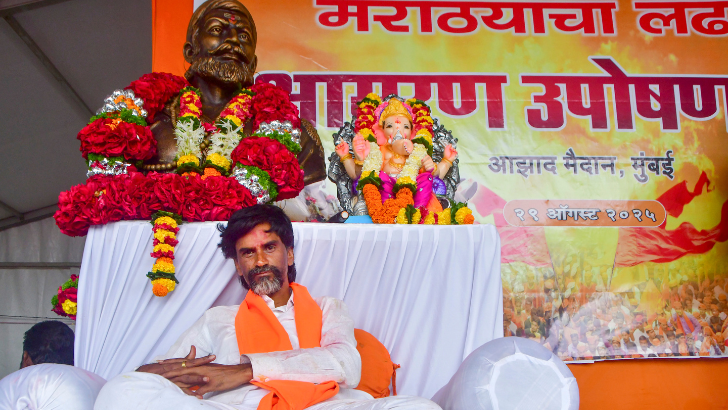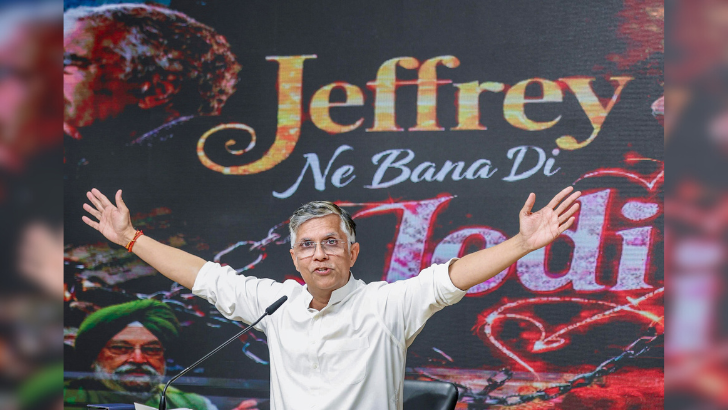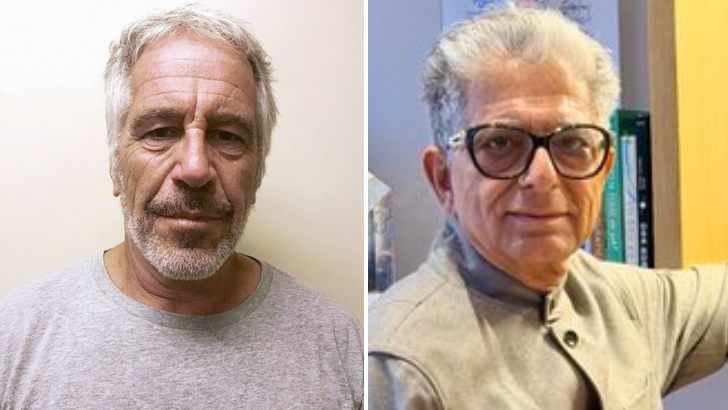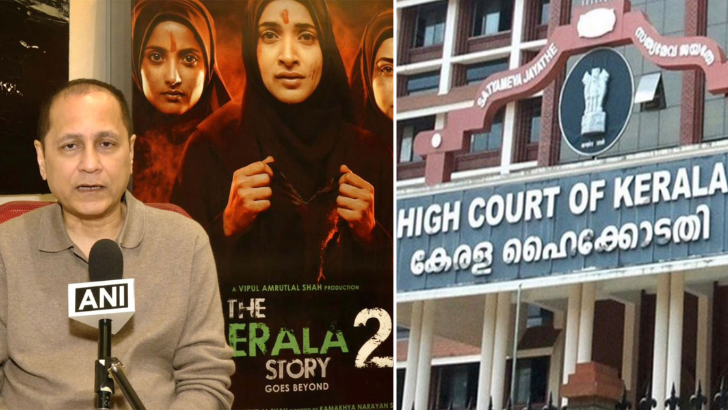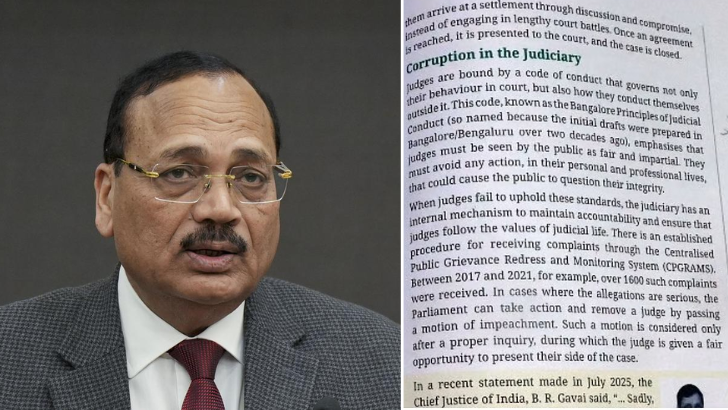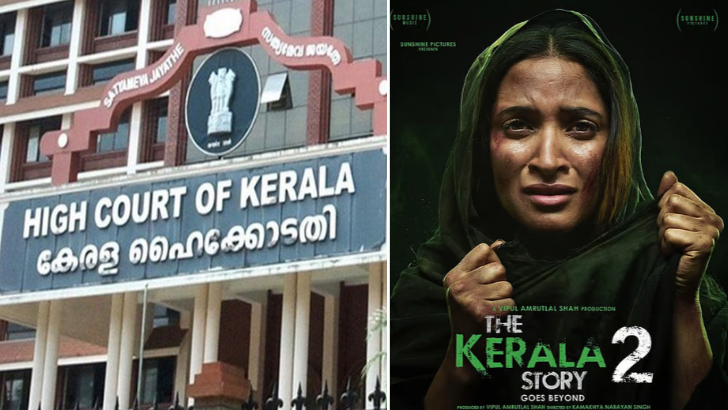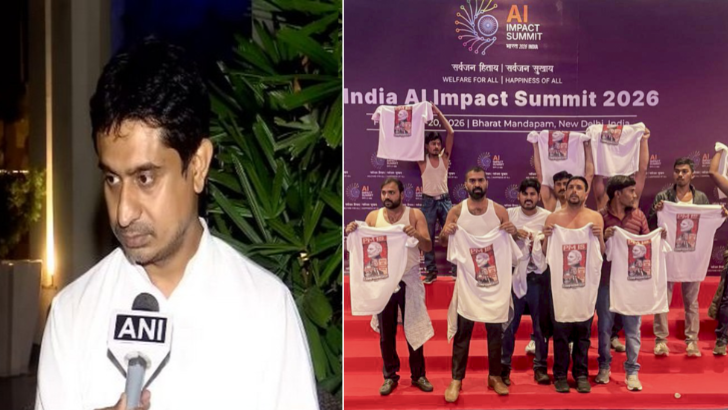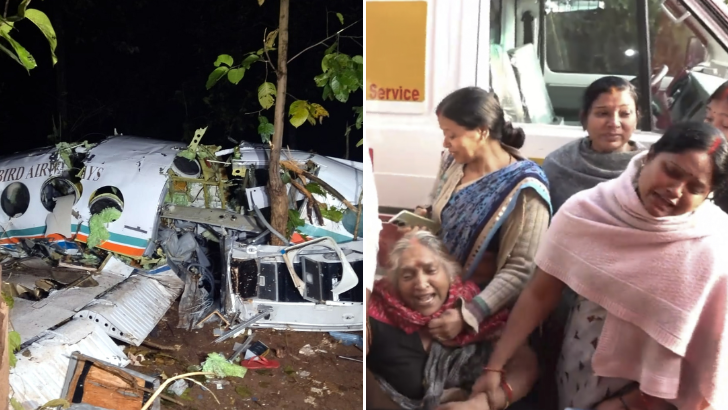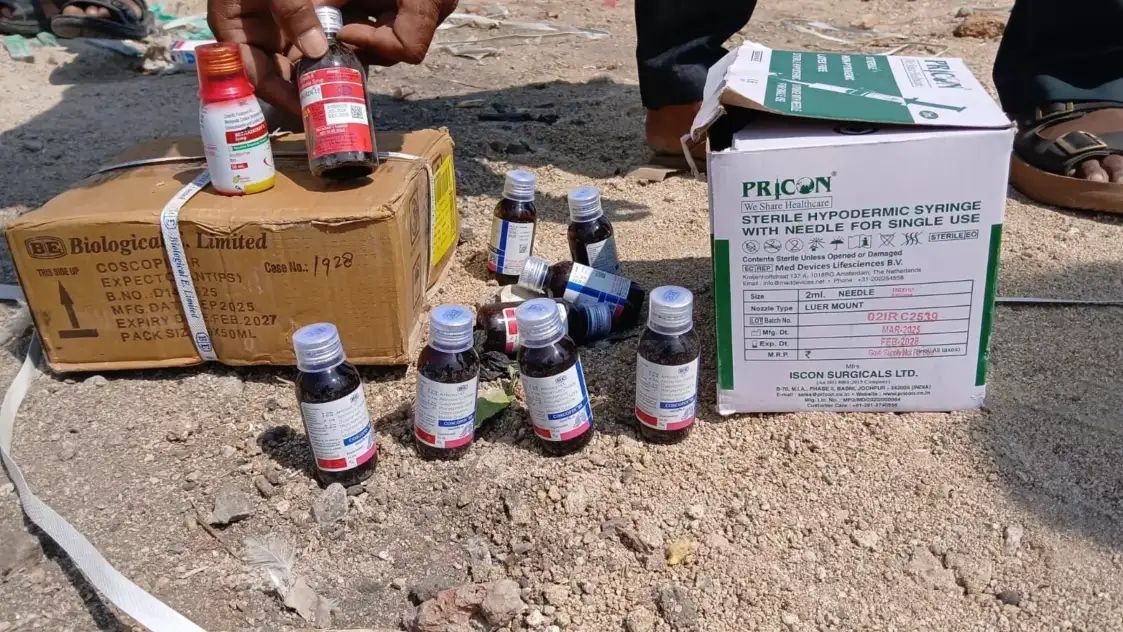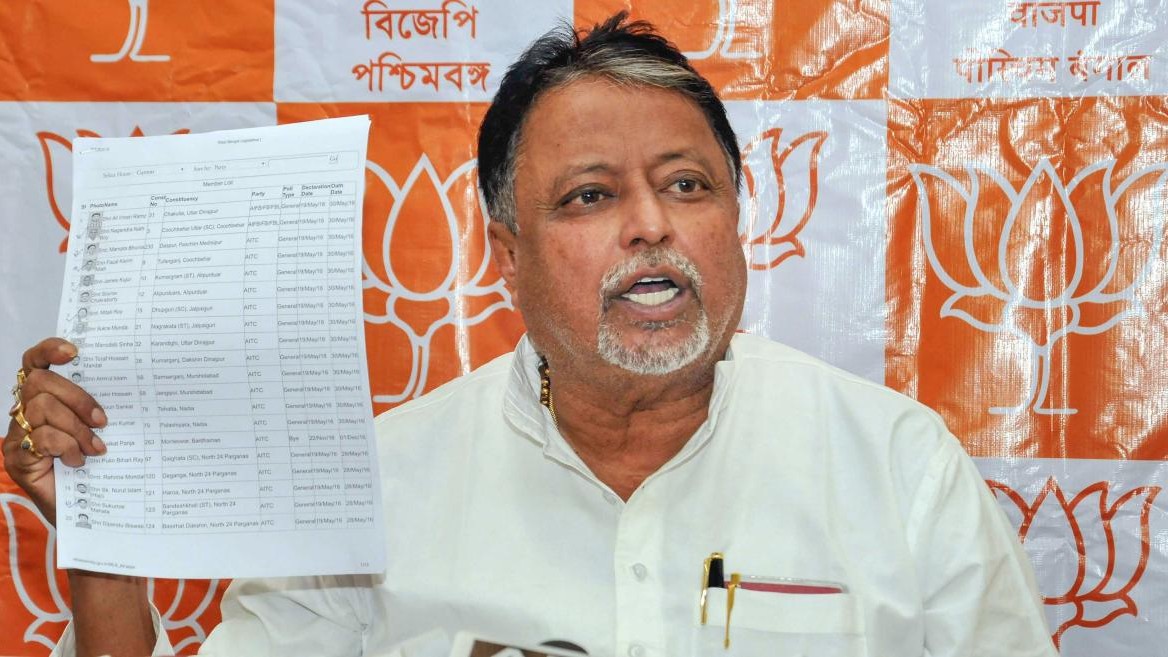Manoj Jarange: Farmer's son to being the face of Maratha quota protest
Always seen in white clothes and sporting a saffron scarf, this lanky activist's aggressive posture and challenge to political heavyweights has made parties wary of him.
PTI
-
Photo: PTI
Chhatrapati Sambhajinagar, 30 Aug
Coming from a humble farming background in a Maharashtra
village to working in a hotel and a sugar factory before becoming the face of
the Maratha reservation agitation, 43-year-old Manoj Jarange has come a long
way.
As Jarange began his yet another round of indefinite fast on
Friday - his seventh since 2023 and touted as the community's final fight to
get reservation - a large number of Marathas gathered at the Azad Maidan in
south Mumbai, the venue of the protest, to show solidarity for the activist,
whom they virtually revere as a hero.
His fight for the Maratha cause has earlier forced the
government and the ruling parties to take note of his demands and send their
representatives for talks due to fear of facing a backlash.
Always seen in white clothes and sporting a saffron scarf,
this lanky activist's aggressive posture and challenge to political
heavyweights has made parties wary of him.
People known to him say he was a Congress activist for a
brief period before quitting active politics and launching agitations for
farmers and the Marathas, a politically influential community that constitutes
around 30 per cent of the state's population.
Till two years ago, Manoj Jarange was not a known name. When
he started his indefinite hunger strike to demand quota for Marathas in his
Antarwali Sarati village in Jalna district on 29 August 2023, it largely went unnoticed.
However, everything changed in a matter of three days after
violence broke out on 1 September when local authorities forcibly tried to
admit Jarange to a hospital.
The subsequent chain of events threw up a huge challenge
before the then 14-month-old Eknath Shinde-led government as the Opposition
gunned for the then Deputy Chief Minister Devendra Fadnavis, who held the home
portfolio, and sought his resignation for the police action against Jarange's
supporters and pro-Maratha quota protesters.
Police baton-charged and lobbed tear gas shells to disperse
the protesters as they refused to let authorities shift Jarange to a hospital.
Several persons, including 40 police personnel, were injured and more than 15
state transport buses set ablaze in the violence.
The protest and the subsequent police action catapulted
Jarange into prominence and forced the Shiv Sena-BJP-NCP government to once
again start talking about reservation for Marathas in education and jobs, an
emotive issue which is now caught in legal tangle.
Jarange hails from Matori, a small village in Beed district
of central Maharashtra. He completed his school education there. After spending
some initial years in the village, he moved to Shahgad in Ambad tehsil of Jalna
district, where he worked in a hotel, Rajendra Kale, a journalist based in
Matori, told PTI earlier.
Later, he got a job in a sugar factory at Ambad from where
he joined politics, he said, adding that Jarange's wife and children live in
Shahgad.
Jarange played a key role in getting compensation from the
government for the families of those who lost their lives during the Maratha reservation
agitation earlier, Kale said.
"While working for the Congress party, he became the
district president of the Youth Congress around 2000. However, due to the
ideological differences over some political issues, he left the Congress and
started working for a Maratha community organisation," said Prof
Chandrakant Bharat, co-ordinator of the Maratha Kranti Morcha (MKM), one of the
outfits that has been agitating for quota to the community.
Around 2011, Jarange formed an organisation named 'Shivba
Sanghatana', he said.
Jarange's agitations are not limited to the Maratha quota
issue alone. He also took up issues related to farmers. In 2013, he launched an
agitation for the demand to release water from the Jayakwadi dam for the
cultivators in Jalna, Bharat added.
"He was actively involved in the pro-Maratha quota
marches that were taken out in 2016 across the state and took community members
from Marathwada in central Maharashtra to Mumbai to put forward their demands
before the then-BJP government led by Devendra Fadnavis," the MKM
functionary said.
Jarange's agitation in Sashti Pimpalgaon of Jalna district
lasted for nearly 90 days, Bharat said.
Anil Maharaj Jarange, a relative of Manoj Jarange, said the
activist left Matori village around 2005.
His father Raosaheb and mother Prabhabai still reside in
Matori. His elder brothers Jagannath and Kakasaheb also live there and do
farming, he said.
"Manoj Jarange purchased some land near Shahgad but his
family always had an average income. He also encouraged others to work for the
community," the relative added.
Jarange has been demanding a 10 per cent quota for Marathas
under the Other Backward Classes (OBC) category. He wants all Marathas to be
recognised as Kunbis – an agrarian caste included in the OBC category – which
will make them eligible for reservation in government jobs and education.
Leave a Reply
Your email address will not be published. Required fields are marked *








